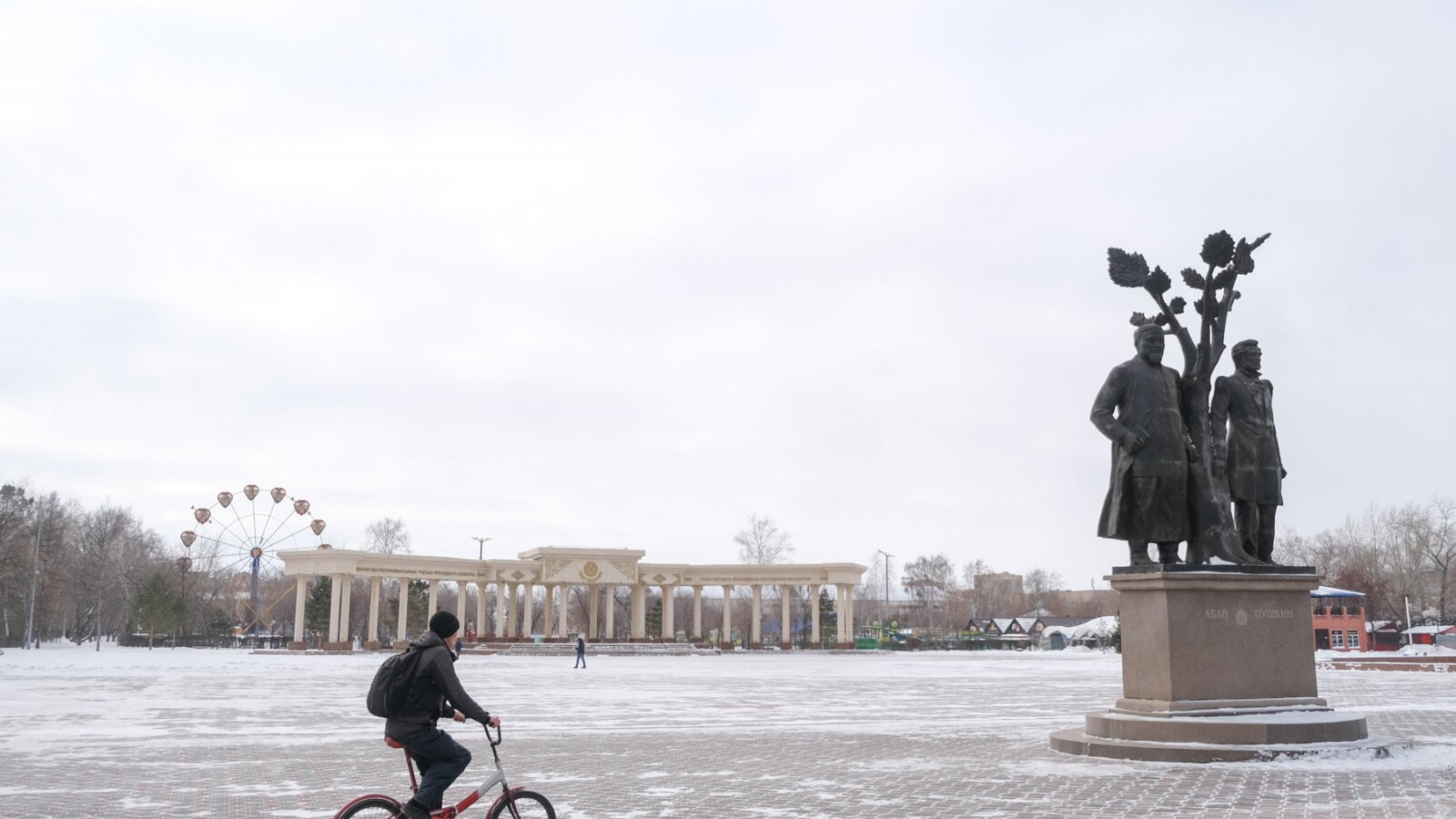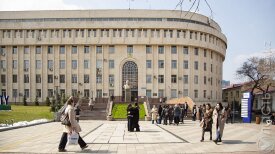An old Kazakh saying goes: “Qara qytai qaptasa, sary orys äkeñdei körınedı” (‘You will perceive the Russians as your own father if a Chinese comes’). With its trite and colonial flavor, the phrase can still give a glimpse into the decades-old tension in the attitude that Kazakhs show towards their neighbors.
A new survey by Central Asia Barometer, a regional-focused institution for applied social research, unveiled a shifting of the tides in public opinion towards Russia, as at least one-third of the respondents in Kazakhstan said they view their northern neighbor “unfavorably”.
Public opinion is split: for some, Russia is an unavoidable, yet dangerous partner, but a lesser evil compared to others; some, on the contrary, view Russia as a promising economic partner and security provider. Russia and Kazakhstan share a long and complex history, characterized by significant exchanges of capital and labor, as well as political ties. Kazakhstanis, for example, have long perceived Russia as attractive for education and economic opportunities, at least before the war it waged on Ukraine. Despite the geopolitical situation, the mutual cross-border ties mean Russia is likely to remain the country’s major strategic political and economic ally for decades to come.
In recent years, the relationship has grown increasingly awkward, which cast a shadow on the attitude of Kazakhs towards Russia and stimulated an ongoing decolonial discourse about the Tsarist and Soviet legacy of oppression against Kazakhstan. Full scale Russian invasion of Ukraine has accelerated and heated the debate, further amplifying the Kazakhstani population’s negative sentiment.
Perceptions of Russia in Kazakhstan: Between Love and Antipathy
The consequences of Russia’s war in Ukraine could be subjectively observed in the lives of ordinary Kazakhstanis and their shifting attitude towards Russia. In general, public opinion polls showed that Kazakhstanis have become less favorable to Russia as "a powerful northern neighbor" compared to previous years.
A survey conducted in 2017 (see the graph below) showed that the people of Kazakhstan, in general, had a relatively good attitude toward Russia. However, six years later, now we see a completely different picture: People have become less friendly towards Russia, and some even express open aversion to it.
The transformation was not sudden: The perception of Russia has experienced notable shifts over a span of six years (see the graph below). The proportion of individuals who held a highly positive view of Russia gradually declined, reaching a nadir in the autumn of 2022. Conversely, the number of those who viewed Russia as highly unfavorable jumped in the spring and summer of 2022, following Russia’s invasion of Ukraine. A plurality of Kazakhstanis remain “somewhat favorable” towards Russia, highlighting an enduring closeness, especially among the elderly.
When examining a granular breakdown of how different age groups see Russia, in fact, a pattern is visible: The older generation tends to hold slightly more positive views and shows less negativity towards Russia compared to young people and individuals aged 50-59 (see the graph below). Crucially, however, as shown in other surveys, elderly residents prefer television as a source of information, thus exposing themselves to the broadcasting of Russian TV channels, eagerly engaged in propaganda. In contrast, among young respondents, approximately half expressed negative feelings towards Russia, while only one in ten described their attitude towards Russia as “very favorable”.
A closer look at the data according to their media consumption reveals that those who regularly watch media content from Russia are nearly twice as likely to view Russia favorably compared to those who are not exposed to such content. The latter express a “very unfavorable” attitude towards Russia in one-third of the cases.
Yet, despite a decrease in favorability towards Russia among Kazakhstanis, the majority of respondents in the autumn of 2022 still believe that Russia holds a friendly attitude towards Kazakhstan. Almost two-thirds of the respondents expressed support for this view, while one-quarter reported perceiving Russia as unfriendly towards Kazakhstan.
More than that, a substantial number of respondents believe that Russia has overall positive influence on Kazakhstan with around one-third of the population expressing the opposite view.
Yet, respondents express considerable concerns about Russia’s influence: about half of surveyed say they are concerned about it.
Russia as a Security Partner?
When it comes to domestic stability and national security, Russia continues to be perceived as a key partner for Kazakhstan. The two countries cooperate through multiple agreements and institutions covering border security, counterterrorism efforts, and joint military exercises. They are both part of the Collective Security Treaty Organization (CSTO), which was called to ensure logistical safety during the January events of 2022 in Kazakhstan.
In general, Kazakhstanis see Russia as the most attractive partner for building security ties: more than one-quarter of respondents named Russia, over Turkey, China, and the United States (see the graph below).
Despite a strong security cooperation at the government level, Kazakhstan’s residents maintain a strong opposition towards hosting Russian military bases in the country. Comparing data from spring 2021 and autumn 2022, the number of those who favor the idea of a temporary or permanent Russian military presence in Kazakhstan has decreased, while those who oppose this presence has increased.
The quantitative survey data alone cannot provide a clear answer on whether a more cautious attitude towards the idea of Russian military presence is due to the CSTO contingent’s brief presence in 2022 or Russia’s invasion in Ukraine. Yet the data shows that the Russian war in Ukraine marked an evident shift in perception among Kazakhstanis: Russia’s image in Kazakhstan has deteriorated considerably, making it more difficult to publicly promote certain bilateral initiatives, especially of a military character, which can trigger a negative public response
Among the older generation, the northern neighbor still provides a sense of security and retains an overall positive image. The ongoing geopolitical circumstances, however, have stirred public criticism towards Russian imperial and Soviet heritage. Now this tension could further deteriorate people’s favorable attitude towards Russia.
Поддержите журналистику, которой доверяют.








